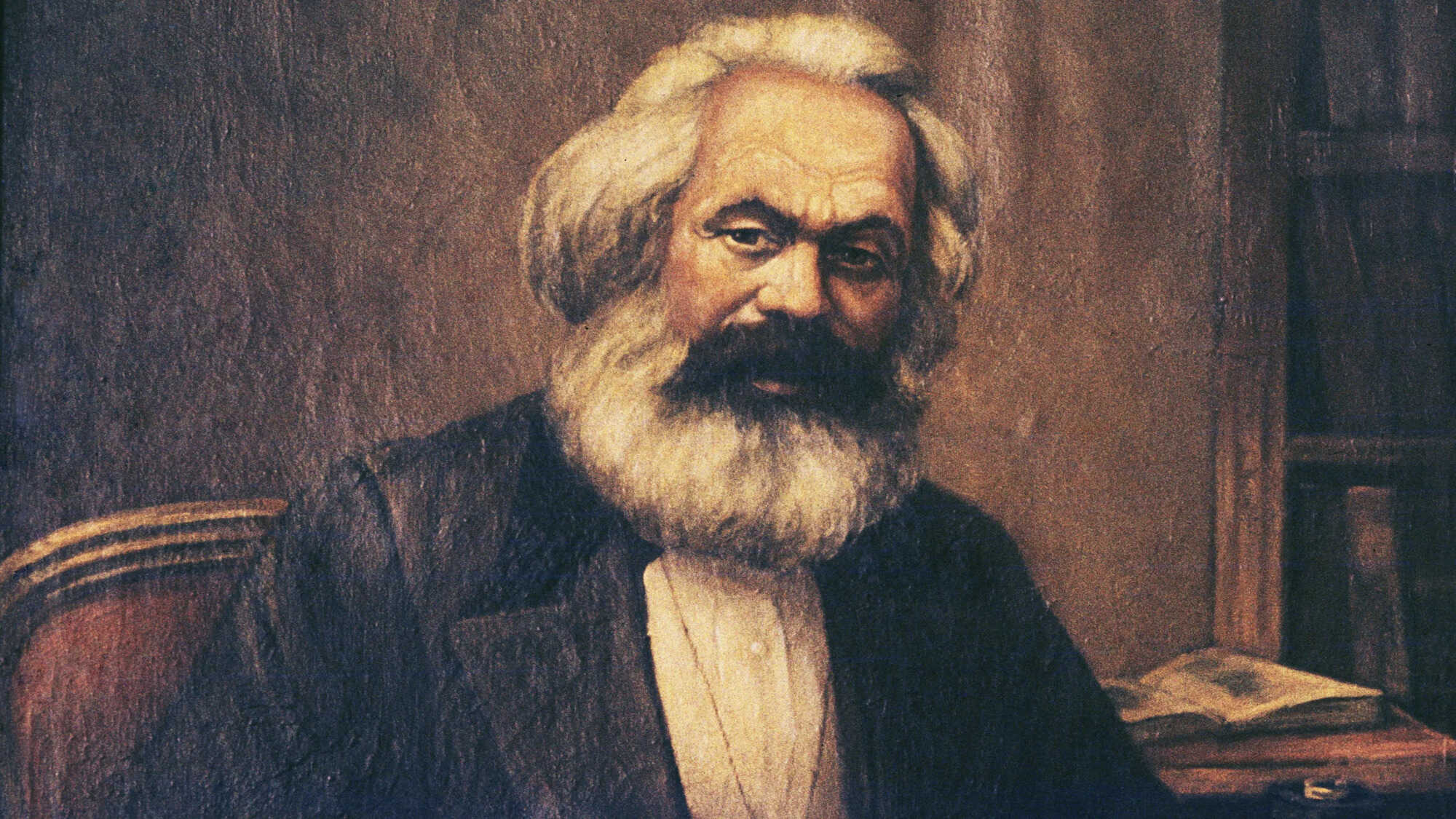
Karl Marx is a name that echoes throughout history and continues to spark intrigue and debate. As one of the most influential philosophers, economists, and political thinkers of the 19th century, Marx’s ideas and theories have had a profound impact on the world. Whether you agree with his beliefs or not, there is no denying the significance of his contributions to the realms of politics, economics, and social justice.
In this article, we will delve into 18 intriguing facts about Karl Marx, shedding light on various aspects of his life and work. From his early years and upbringing to his major contributions to philosophy and economics, these facts will offer a deeper understanding of the man behind the revolutionary ideas.
So, whether you’re a history buff, a student of political science, or simply curious about influential figures who shaped the world we live in, read on to discover some fascinating facts about the enigmatic Karl Marx.
Key Takeaways:
- Karl Marx, born in 1818, shaped history with his influential ideas on class struggle, capitalism, and communism, inspiring social movements and revolutions worldwide.
- Marx’s legacy lives on, with his theories and ideas continuing to spark debate and analysis, while his final resting place in Highgate Cemetery remains a site of pilgrimage.
Marx was born on May 5, 1818, in Trier, Germany.
Karl Marx, the influential philosopher, economist, and revolutionary socialist, was born on May 5, 1818, in Trier, Germany. His ideas would go on to shape the course of history.
Marx is best known for his work “The Communist Manifesto”.
Karl Marx’s most famous work, “The Communist Manifesto,” co-authored with Friedrich Engels, was published in This influential political pamphlet laid out the principles of communism and became a rallying cry for the working class.
Marx believed that class struggle was the driving force of history.
Marx argued that throughout history, society has been divided into different classes, with the ruling class exploiting the working class. He believed that this class struggle would eventually lead to the overthrow of capitalism and the establishment of a communist society.
Marx’s theory of surplus value revolutionized economics.
In his critique of capitalism, Marx introduced the concept of surplus value, which refers to the difference between the value of a worker’s labor and the wages they receive. This theory became a cornerstone of Marxist economics.
Marx spent much of his life in exile.
Due to his radical ideas and political activities, Marx faced persecution and was forced to live in various countries throughout his life, including France, Belgium, and England.
Marx collaborated closely with Friedrich Engels.
Marx formed a lifelong partnership with Friedrich Engels, who provided financial support and co-authored several works with him, including “The Communist Manifesto” and “Das Kapital.
Marx wrote extensively on the alienation of the individual.
One of Marx’s central concerns was the alienation of the individual under capitalism. He argued that in a capitalist society, people become disconnected from themselves, their work, and each other.
Marx’s concepts influenced various fields beyond economics.
Marx’s ideas went beyond economics and influenced fields such as sociology, political science, and cultural studies. His concept of class struggle and the exploitation of labor remain highly relevant today.
Marx’s writings have been translated into numerous languages.
Marx’s works have been translated into countless languages, allowing his ideas to reach a global audience and inspiring generations of scholars, activists, and revolutionaries.
Marx spent years researching and writing “Das Kapital”.
“Das Kapital,” Marx’s seminal work on political economy, took him over two decades to research and write. The three-volume book explored the dynamics of capitalism and its inherent contradictions.
Marx predicted the eventual downfall of capitalism.
Based on his analysis of the inherent flaws of capitalism, Marx predicted that the system would eventually collapse and be replaced by socialism or communism.
Marx’s ideas have had a lasting impact on social movements.
Marx’s theories and ideas have played a significant role in inspiring social movements and revolutions around the world, from the Russian Revolution to anti-colonial struggles.
Marx and Engels founded the International Workingmen’s Association.
In 1864, Marx and Engels helped establish the International Workingmen’s Association, also known as the First International, which aimed to unite workers across national boundaries.
Marx had a complex relationship with religion.
Marx famously referred to religion as the “opium of the people,” arguing that it was used by those in power to pacify and control the working class. However, his views on religion were nuanced and evolved over time.
Marx’s works were heavily censored and banned in some countries.
Due to the revolutionary nature of his ideas, Marx’s works were often censored and banned in various countries throughout history. Despite this, his influence continued to grow.
Marx died on March 14, 1883, in London.
Marx passed away on March 14, 1883, in London, leaving behind a legacy that would continue to shape political and social movements for years to come.
Marx’s grave in Highgate Cemetery is a site of pilgrimage for many.
Marx’s final resting place in Highgate Cemetery in London has become a site of pilgrimage for those who admire his ideas and want to pay tribute to his contributions.
Marx’s ideas continue to be debated and analyzed today.
The legacy of Karl Marx lives on, with his theories and ideas continuing to be subjects of debate and analysis in academic and intellectual circles.
Conclusion
As we delved into the life and contributions of Karl Marx, we uncovered 18 intriguing facts that shed light on this influential philosopher and economist. From his early years in Germany to his groundbreaking works on capitalism and socialism, Marx’s ideas continue to shape political and economic discourse to this day.
Marx’s revolutionary theories on social class, labor, and wealth distribution have left an indelible mark on history. Despite controversy surrounding some of his beliefs, his works have been studied, debated, and analyzed by scholars, politicians, and activists worldwide.
Whether one agrees or disagrees with Marx’s ideologies, there is no denying that his impact on the modern world cannot be ignored. His works have inspired social movements, led to policy changes, and shaped academic fields such as sociology and political science.
As we strive to understand and navigate the complexities of our economic and social systems, Karl Marx’s ideas continue to provide valuable insights and serve as a foundation for critical analysis and discourse.
FAQs
Q: What is Karl Marx famous for?
A: Karl Marx is famous for his beliefs in socialism, communism, and his seminal work, “The Communist Manifesto.”
Q: Where was Karl Marx born?
A: Karl Marx was born in Trier, Germany.
Q: When did Karl Marx live?
A: Karl Marx lived from May 5, 1818, to March 14, 1883.
Q: What were Karl Marx’s key ideas?
A: Karl Marx’s key ideas revolved around the critique of capitalism, class struggle, and the idea of a socialist revolution leading to a classless society.
Q: Are Karl Marx’s ideas still relevant today?
A: Yes, many of Karl Marx’s ideas are still relevant today, especially when discussing economic inequality, class divisions, and the role of capitalism in society.
Q: Did Karl Marx ever hold a political position?
A: No, Karl Marx never held a political position. However, his ideas have influenced various political movements and parties throughout history.
Q: Did Karl Marx write any other works besides “The Communist Manifesto”?
A: Yes, Karl Marx co-authored “The Communist Manifesto” with Friedrich Engels, but he also wrote “Capital,” which is considered his most significant work.
Q: How did Marx view the role of the working class?
A: Marx viewed the working class, or the proletariat, as the driving force behind societal change, believing that they would eventually overthrow the bourgeois capitalist class.
Q: What impact did Karl Marx have on political and economic thought?
A: Karl Marx had a profound impact on political and economic thought, providing the foundation for both socialist and communist ideologies.
Inspired by Marx's enduring legacy? Satisfy your curiosity with more intriguing facts about the Karl Marx Monument, which stands as a testament to his influence. Delve deeper into Marx's life and ideas through 14 fascinating facts that shed light on his personal and intellectual journey. For a lighthearted look at the ideology he helped shape, explore 20 fun facts about communism that offer surprising insights into its history and impact.
Was this page helpful?
Our commitment to delivering trustworthy and engaging content is at the heart of what we do. Each fact on our site is contributed by real users like you, bringing a wealth of diverse insights and information. To ensure the highest standards of accuracy and reliability, our dedicated editors meticulously review each submission. This process guarantees that the facts we share are not only fascinating but also credible. Trust in our commitment to quality and authenticity as you explore and learn with us.


